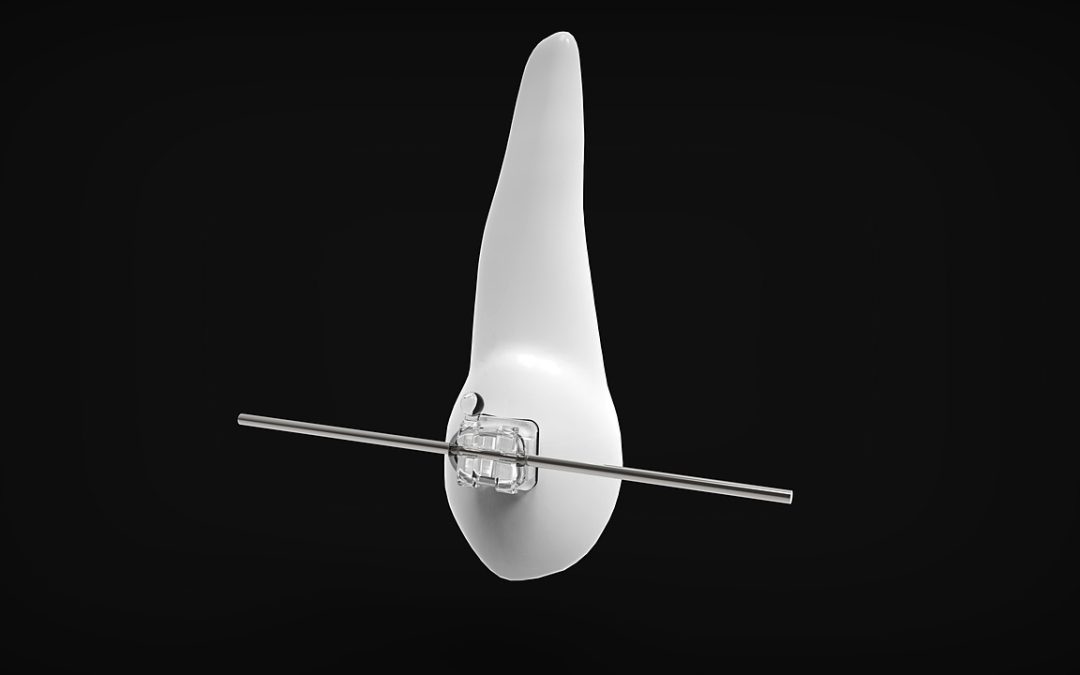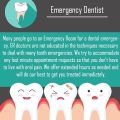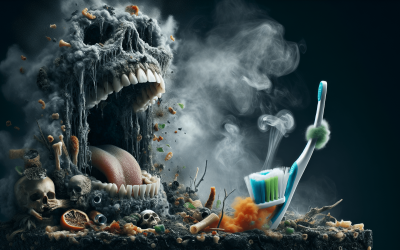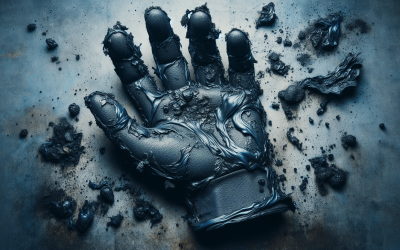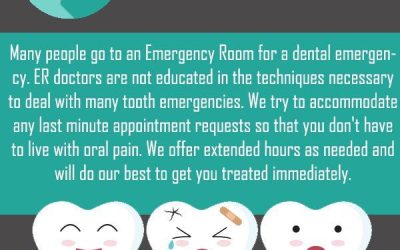Imagine this scenario: you’re playing a game of football with your friends, having a great time, when suddenly, a collision occurs and you feel an excruciating pain in your mouth. As you touch your teeth, panic sets in – one of your teeth has been knocked out! The thought of losing a tooth can be daunting, but fear not, because in this article, we will guide you through the necessary steps to handle a knocked-out tooth effectively. Whether it happens to you or someone you know, knowing what to do in this situation can make all the difference in potentially saving your precious pearly whites.
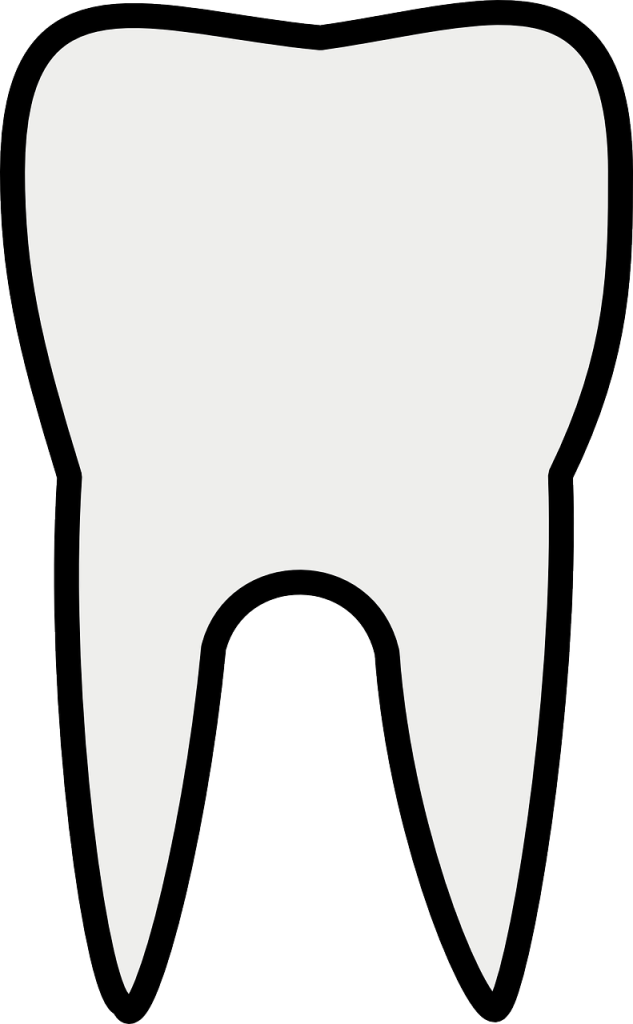
Initial Response
Stay calm
If you’ve just knocked out a tooth, it’s completely understandable to feel panicked and worried. However, it’s important to stay as calm as possible. Panicking will only make the situation more difficult to handle, so take a deep breath and try to remain composed.
Assess the situation
After calming yourself down, take a moment to assess the situation. Is the tooth completely knocked out or just partially? Is it a permanent tooth or a baby tooth? These details will help determine the appropriate course of action.
Find the tooth
Now, it’s time to locate the tooth. If it was knocked out, try to find it as quickly as possible. The tooth must be handled properly to have the best chance of being saved. Don’t forget to check your surroundings – the tooth might have fallen onto the floor or into the sink.
Handle the tooth with care
Once you’ve found the tooth, it’s crucial to handle it with care. Avoid touching the root of the tooth as much as possible. Only hold it by the crown or the top part of the tooth. This will help preserve the delicate tissues attached to the root, increasing the likelihood of successful reimplantation.
Immediate Actions
Rinse the tooth
If the tooth is dirty, gently rinse it with water. Avoid using any soap or chemicals. Be careful not to scrub or wipe the tooth, as this could damage the delicate tissues clinging to the root.
Avoid scrubbing or wiping
As mentioned, it’s important to avoid scrubbing or wiping the tooth to prevent further damage. The goal is to keep the tooth as clean and intact as possible.
Place the tooth back in the socket
If it’s a permanent tooth and you feel comfortable doing so, try to reinsert it into the socket. Align it properly and push it down gently. Once in place, bite down softly to hold it in position.
Hold the tooth in place
You might be wondering how to keep the tooth from moving while you seek dental assistance. One method is to gently bite down on a clean piece of cloth or gauze to secure the tooth in place. This will help minimize any movement and increase the chances of successful reimplantation.
If unable to reinsert the tooth
If you’re unable to reinsert the tooth or if it’s a baby tooth, it’s essential to keep it moist until you can see a dentist. Place the tooth in a container of milk or your own saliva. Avoid using tap water, as it may damage the tooth.
Contacting the Dentist
Call the dentist immediately
Once you’ve taken immediate actions, contact your dentist right away. Explain the situation and let them know that you’ve knocked out a tooth. Most dental practices consider this a dental emergency and will make arrangements to see you as soon as possible.
Provide necessary details
When speaking with the dentist, be prepared to provide necessary details about the incident. Explain how the tooth got knocked out, whether it’s a baby tooth or a permanent tooth, and any other relevant information that might help them assess the situation better.
Follow the dentist’s instructions
Listen carefully to the instructions given by your dentist over the phone. They may provide further guidance on how to handle the situation until you can reach the dental office. Following their advice is crucial as they have the knowledge and expertise to best manage the situation.
Arrange for transportation
If you’re unable to drive yourself, make arrangements for transportation to the dental office. Inform a family member, friend, or even a rideshare service about the emergency situation and provide them with the necessary details. It’s essential to prioritize getting to the dentist as soon as possible.
Handling the Injured Area
Control bleeding
Bleeding is common with a knocked-out tooth. To control it, gently bite down on a clean piece of cloth or gauze. Apply light pressure to the area and keep it there until the bleeding subsides. If the bleeding continues for an extended period, seek immediate medical attention.
Apply a cold compress
To reduce swelling and alleviate any pain or discomfort, apply a cold compress to the injured area. Wrap a bag of ice or a cold pack in a clean cloth and hold it against the cheek or lip in the vicinity of the knocked-out tooth. This will help numb the area and reduce inflammation.
Take pain medication
If you’re experiencing pain or discomfort, over-the-counter pain medication such as ibuprofen or acetaminophen can provide temporary relief. Remember to follow the dosage instructions and consult with your dentist if you have any concerns or questions.
Avoid eating or drinking
To protect the injured area, avoid eating or drinking until you have received guidance from your dentist. Consuming food or beverages can irritate the exposed tissues and potentially cause further damage. Stick to soft foods and liquids if you must eat or drink before seeing a dental professional.
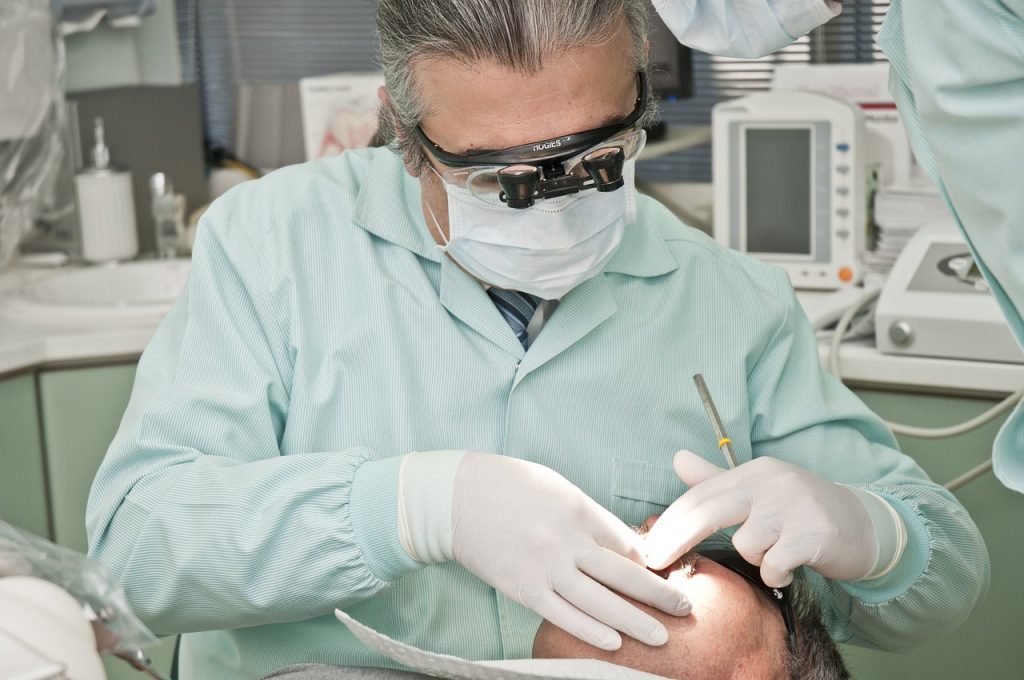
Preparing for the Dentist
Clean your mouth
Before visiting the dentist, gently rinse your mouth with warm water to remove any blood or debris. Be cautious not to spit forcefully, as this could dislodge any blood clots that have formed and prolong bleeding.
Collect and preserve tooth fragments
If your tooth broke into pieces upon impact, try to collect and preserve as many fragments as possible. Place them in a clean container filled with milk or your saliva. Your dentist may be able to use these fragments to repair or reconstruct the damaged tooth.
Gather relevant information
Prepare any relevant information that might be useful for your dentist during the examination. This can include your dental insurance details, previous dental records, and any medication you are currently taking.
Pack a dental emergency kit
To be prepared for any future dental emergencies, consider putting together a dental emergency kit. Include items such as gauze, a small container, pain medication, and the contact information for your dentist. Having these supplies readily available can make a significant difference in handling dental emergencies promptly.
Dentist’s Examination
Assess the tooth and injury
Once you reach the dental office, the dentist will examine the knocked-out tooth and assess the extent of the injury. They will carefully inspect the tooth, the gums, and the surrounding tissues to determine the best course of action.
Check for injuries to the mouth
In addition to the knocked-out tooth, the dentist will also examine the rest of your mouth for any other injuries that might have occurred during the incident. They will look for cuts, lacerations, or any signs of trauma that could require further attention.
Perform necessary tests
To fully evaluate the condition of the tooth, the dentist may need to perform various tests. These can include X-rays to assess the root, pulp, and surrounding bone structure. These tests help the dentist make informed decisions regarding the treatment plan.
Determine the treatment plan
After a thorough examination, the dentist will discuss the treatment options with you. The plan will depend on various factors such as the condition of the tooth, the severity of the injury, and your overall oral health. The dentist will explain each option and recommend the most suitable course of action.
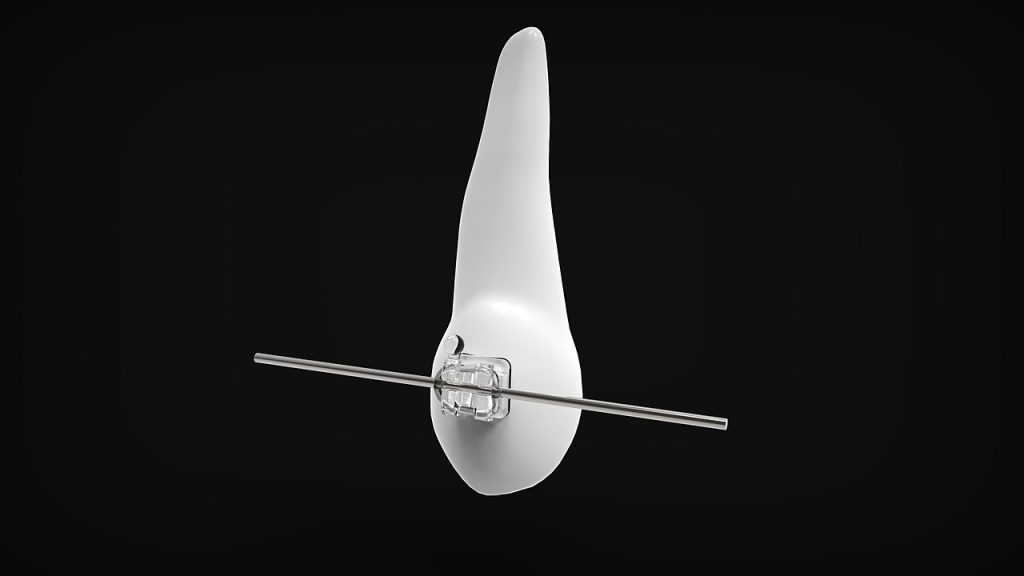
Options for Tooth Replacement
Reimplanting the original tooth
If the tooth is in good condition and was successfully reinserted immediately after being knocked out, there is a possibility that it can be saved. The dentist will assess the viability of the tooth and decide whether it can be reimplanted permanently.
Dental implants
If the original tooth cannot be saved, a dental implant might be recommended. Dental implants are artificial tooth roots made of titanium that are surgically placed into the jawbone. They provide a sturdy foundation for a replacement tooth, ensuring a natural-looking and functional result.
Dental bridges
Another tooth replacement option is a dental bridge. This involves using the adjacent teeth to support a prosthetic tooth that fills the gap left by the knocked-out tooth. Bridges can be made from various materials, including porcelain, and are custom-made to match your natural teeth.
Removable dentures
For those who have lost multiple teeth or the entire dental arch, removable dentures might be the recommended solution. Dentures are custom-made prosthetic teeth that can be easily removed and cleaned. While they are not permanently fixed like implants or bridges, they can restore the appearance and functionality of the missing teeth.
Aftercare
Follow the dentist’s instructions
After the initial treatment, it’s crucial to follow the dentist’s instructions for aftercare. This may include taking prescribed medications, using mouth rinses, and maintaining good oral hygiene practices. Adhering to these instructions will promote proper healing and reduce the risk of complications.
Maintain good oral hygiene
To prevent any further issues and promote oral health, it’s important to maintain good oral hygiene. Brush your teeth at least twice a day using a soft-bristled toothbrush and fluoride toothpaste. Floss daily to remove plaque and food particles from between your teeth and gums.
Attend scheduled check-ups
Regular dental check-ups are essential, especially after experiencing a knocked-out tooth. Your dentist will monitor the healing process, ensure there are no additional problems, and make necessary adjustments to your treatment plan if needed. It’s important not to skip these appointments.
Avoid risky activities
To protect your teeth and prevent further dental emergencies, it’s advisable to avoid engaging in risky activities where injury might occur. This can include contact sports without appropriate mouthguards, biting hard objects such as ice or pens, or engaging in any activity that may lead to facial trauma.
Long-term Effects
Risk of infection
One of the long-term effects associated with knocked-out teeth is the risk of infection. When a tooth is knocked out, the protective enamel covering is compromised, leaving the root exposed. This increases the vulnerability to bacteria, potentially leading to oral infections if not properly treated and managed.
Aesthetic considerations
The loss of a tooth can have a significant impact on one’s appearance. The gap left by the knocked-out tooth can affect the symmetry of the smile and overall facial aesthetics. Replacing the missing tooth with a suitable option, such as an implant or bridge, will help restore the natural beauty of the smile.
Potential impact on speech
Teeth play a crucial role in proper speech production. When a tooth is missing, it can affect one’s ability to pronounce certain sounds, resulting in speech changes. Replacing the missing tooth can help restore proper speech patterns and improve overall communication.
Psychological effects
A knocked-out tooth can have psychological effects on an individual. It can result in decreased self-confidence, self-esteem, and even social withdrawal. Restoring the missing tooth not only improves oral health but also helps alleviate these psychological effects, promoting a positive self-image.
Prevention Tips
Wear a mouthguard during sports
To prevent dental injuries while engaging in sports, it’s important to wear a mouthguard. A custom-fitted mouthguard can provide significant protection by cushioning the teeth and absorbing the shock of an impact. This simple preventive measure can help avoid knocked-out teeth and other dental trauma.
Maintain good oral hygiene
Maintaining good oral hygiene is crucial in preventing dental problems, including knocked-out teeth. Brushing twice a day, flossing daily, and visiting your dentist regularly can help identify any dental issues early on and prevent future emergencies.
Avoid chewing on hard objects
Avoid the habit of chewing on hard objects like pen caps or ice cubes. These behaviors can put undue pressure on the teeth and increase the risk of them becoming loose or even getting knocked out. Choose softer alternatives like sugar-free gum or opt for snacks that are gentle on your teeth.
Regular dental check-ups
Regular dental check-ups are not only essential for maintaining good oral health but also for preventing dental emergencies. Your dentist can identify any potential issues and provide timely treatment to address them before they escalate into more severe problems.
By following these guidelines and being prepared, you can increase the chances of saving a knocked-out tooth and minimize any potential long-term effects. Remember, the most critical step is to contact your dentist immediately and seek professional guidance. Your dentist will provide the necessary care and help restore your oral health and smile.

